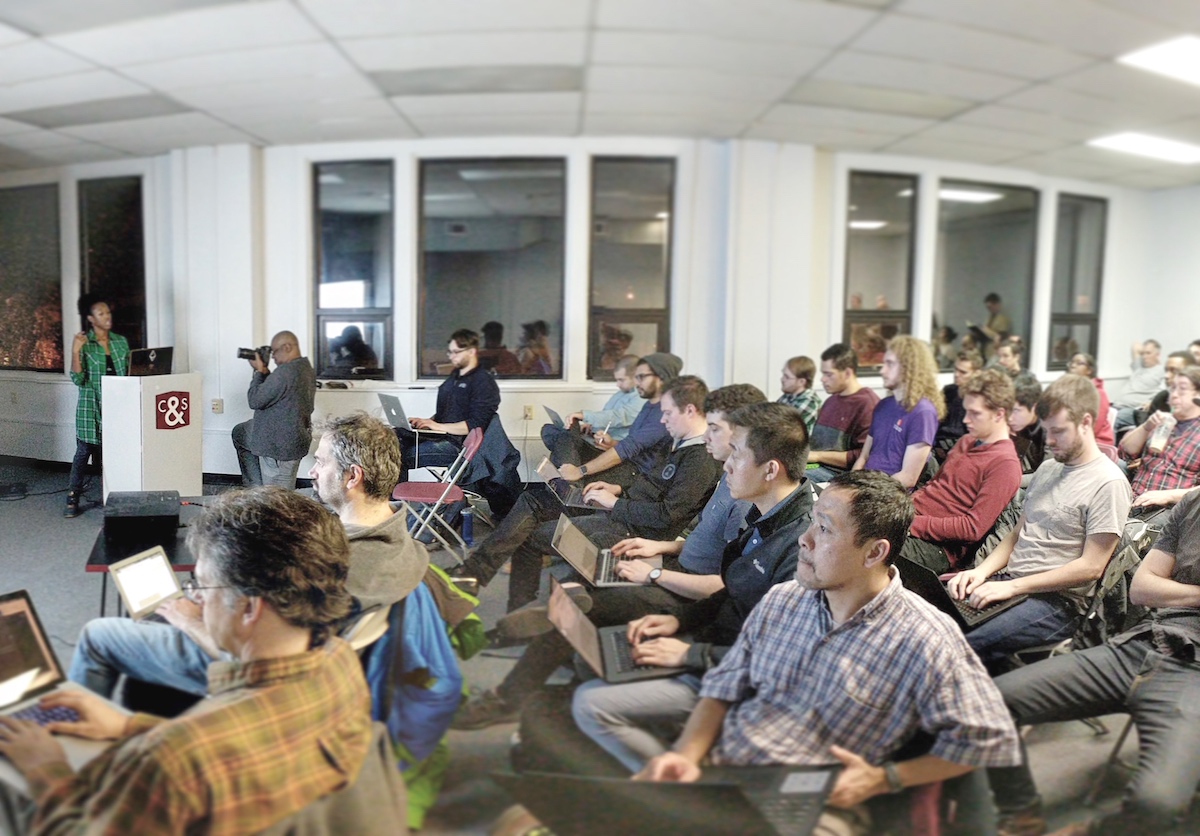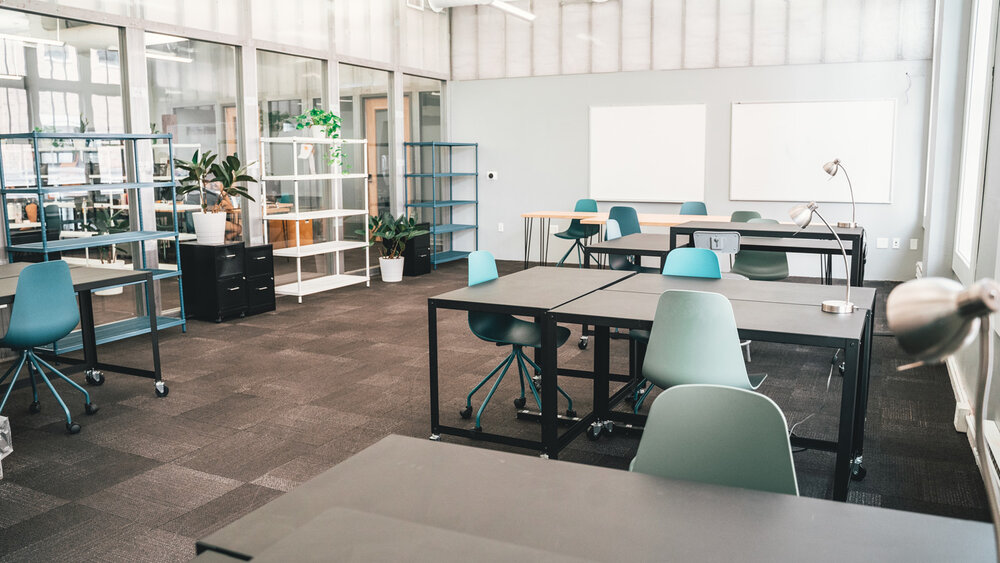Where return-to-office plans seemed certain at the start of the summer, the rise of the Delta variant has overturned or delayed almost all of them.
So what does the future of work actually look like now, as what once seemed temporary becomes increasingly permanent? Will we be virtual forever? Will employers still look to operate in-person spaces for workers to return to — or rely on more flexible and hybrid options?
Technical.ly hosted a recent Slack chat with the people who might have the best answer to these questions: coworking space leaders from Pittsburgh, Philly, Baltimore, DC and Delaware. Representing the City of Bridges were Pittsburgh Innovation District (PID) Director Mike Madden and Code & Supply Managing Director Colin Dean. PID runs Avenu, which includes three locations near prominent local universities, while Code & Supply operates a space in East Liberty as well as software events such as the Abstractions conference.
While both coworking spaces are open right now, Madden and Dean shared ways they’ve worked to build communities online, and what they’re hearing from members about workplace preferences going ahead.
Though more employers are tending toward hybrid models in the Pittsburgh area, which might lend itself to more workers spreading to more flexible out-of-home workspaces, activity at the coworking spaces remains low. Dean reported a total of five daily coworkers at Code & Supply, and a little under 10 who come in weekly, while Madden reported 20 total members across three locations operated by PID with attendance that “varies greatly.”
Vaccinations have made the spaces more accessible, with masks now only required for unvaccinated guests, but despite the business reopenings of the summer, “we are still a ways off from our normal pre-pandemic energy and cadence,” Madden noted.
Coworking operators from other markets reported higher attendance numbers, with REC Philly cofounder Dave Silver sharing that his space-slash-studio has been open since February 2021, and just surpassed 1,000 active members. But Madden wasn’t surprised to hear that larger cities were seeing more success at bringing back former members and attracting new ones. In the not too distant past, Pittsburgh still struggled to provide a solid community of innovation spaces for technologists and engineers, he said.
“The Pittsburgh Innovation District’s success depends on creating the critical mass other cities have,” he said. “Coworking = no brainer.”

At a past Code & Supply event. (Photo via Twitter)
For his part, Dean has seen the Code & Supply community respond well to a transition to Slack.
“Code & Supply practically is our Slack chat community right now,” he said. “With our in-person events not happening and our coworking space a ghost town relative to what it was to The Before Times, I’ve worked to increase engagement and drive traffic to our chat systems in order to capture folks looking for some semblance of a community experience.”
Some of that engagement steps outside the bounds of tech, and encourages members to connect over shared personal life concerns as well. Dean launched a Slack channel focused on talking about mental health that eventually turned into a biweekly and then weekly video chat with members looking for comfort in these incredibly stressful times. That’s something Shervonne Cherry, the director of community and partnerships at Spark Baltimore, looked to prioritize, too, with monthly town halls and one on one meetings with members to discuss both office needs and mental health.
As for what the rest of this year and next will look like for Pittsburgh coworking, Dean and Madden remain unsure, but both have plans to continue operations for now. Until then, they’re taking cue from their members on how to improve their online and physical communities. Whether those are surveys, individual meetings with members or office arrangement adjustments to meet new needs, Madden said the key to being successful in this changing climate is adaptation and giving members options for better work environments.
“Quality of life matters more than ever. Coworking spaces need to reflect or at least somewhat resemble the spaces people have made for themselves to work at home,” he wrote in the AMA. “We need to provide the best of both worlds — the productivity of an office and the comfort of your home office.”
To read the rest of the conversation, join Technical.ly’s community Slack.
Sophie Burkholder is a 2021-2022 corps member for Report for America, an initiative of The Groundtruth Project that pairs young journalists with local newsrooms. This position is supported by the Heinz Endowments.
This editorial article is a part of How We Work Now Month of Technical.ly's 2021 editorial calendar.
Join our growing Slack community
Join 5,000 tech professionals and entrepreneurs in our community Slack today!
Donate to the Journalism Fund
Your support powers our independent journalism. Unlike most business-media outlets, we don’t have a paywall. Instead, we count on your personal and organizational contributions.

Traditional PPE isn’t made for everyone. Here’s how one startup is fixing it.

Pittsburgh has all the resources to be the next big green energy hub — except the workers to make it happen

Comcast introduces ultra-low lag Xfinity internet that boosts experiences with Meta, NVIDIA and Valve


